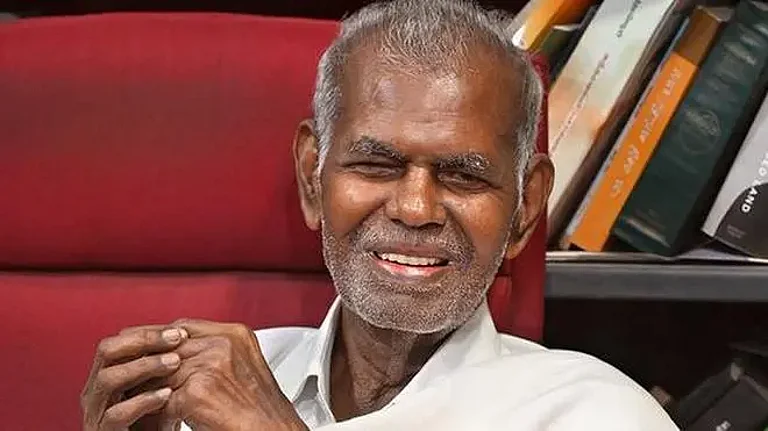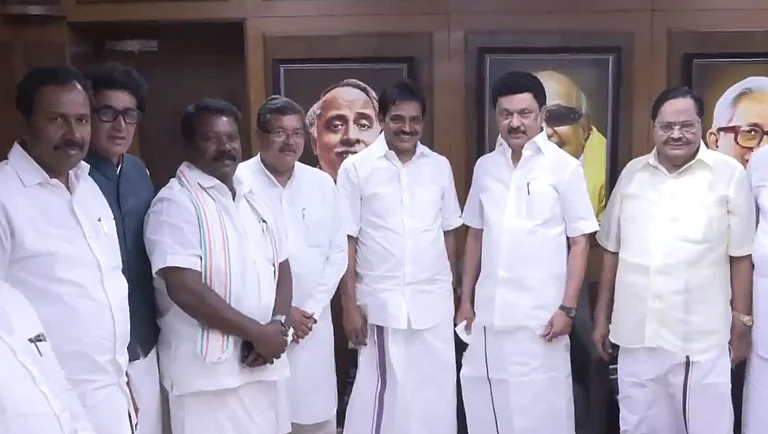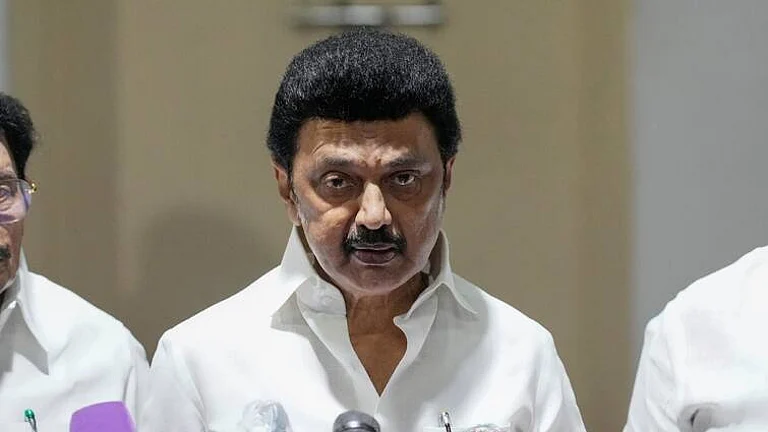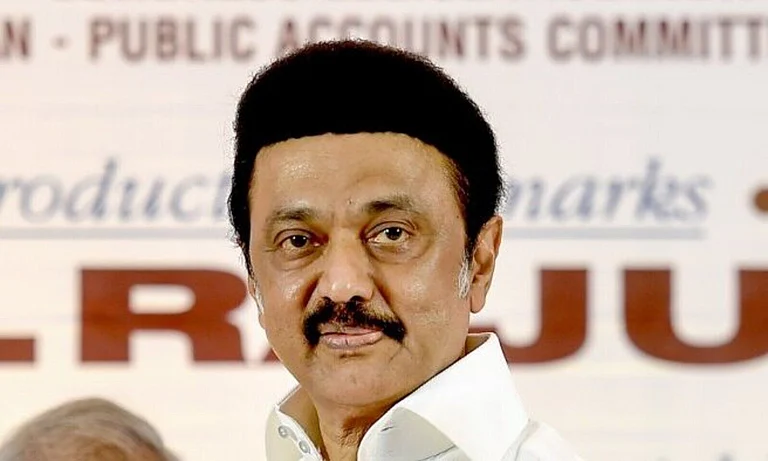
Stalin said the Supreme Court’s advisory opinion does not alter the April 2025 ruling and reaffirmed that the Governor cannot indefinitely hold or stall Bills.
The Raj Bhavan rejected allegations of delay, claiming "81 per cent of the Bills" have already received assent amid ongoing friction between the DMK government and Governor R N Ravi.
Tamil Nadu Chief Minister and DMK president M K Stalin on Friday sharpened his stance in the ongoing confrontation between the State government and Raj Bhavan, declaring that "there will be no rest" until the Constitution is amended to mandate fixed timelines for Governors to clear Bills.
Reacting for the first time to the Supreme Court's advisory opinion on the Presidential Reference, Stalin reiterated that the legal and political push for stronger federalism was far from over. "Our fight for State rights and true federalism will continue," he said, stressing that the advisory opinion does not alter the April 8, 2025 Supreme Court judgment in State of Tamil Nadu vs Governor of Tamil Nadu.
According to Stalin, the Bench while delivering its opinion reiterated core constitutional principles: the elected government must remain the primary executive authority, and States cannot have “two power centres.” He pointed out that the court reaffirmed that constitutional authorities cannot act beyond the boundaries of the Constitution, and that Governors do not possess a “fourth option” to indefinitely stall, kill, or sit on Bills without action — a practice he said had been exercised in Tamil Nadu through a form of pocket veto.
The court’s view also clarified that prolonged and unexplained delays by Governors could be subject to judicial scrutiny, allowing States to approach constitutional courts if the functioning of legislatures is obstructed.
Stalin cited the 9-Judge Bench ruling in Ahmedabad St. Xavier’s College Society v. State of Gujarat (1974), noting that the advisory opinion carries “no more effect than the opinion of the law officers.” He emphasised that the November 20 opinion once again dismissed the Governor’s argument that Bills could be buried or avoided through inaction.
Reflecting on the larger political implications, Stalin said: "Through our legal battle, we have now compelled Governors… to work in line with the elected government and be accountable for their deliberate inaction." He added that the ruling strengthens the powers of constitutional courts to examine such inaction and prevents constitutional authorities from sheltering behind Article 361.
He continued by stating: "I believe that no constitutional authority can claim to be above the Constitution," arguing that judicial oversight remains essential to safeguard democracy from politically motivated interference.
His concluding remarks were pointed and symbolic: "I have promises to keep, and until our people’s will in Tamil Nadu is fulfilled through legislation, we will ensure that every constitutional apparatus functions in this country in accordance with the Constitution."
DMK MP and senior advocate P Wilson echoed this interpretation, stating earlier that the Supreme Court’s "no timelines for Governors" stance was merely an advisory and “not a judgment,” and therefore not binding or applicable to ongoing litigation.
Following the April 2025 judgment, the Tamil Nadu government went on to notify ten Acts — many concerning state-run universities — after the court ruled that Bills passed twice by the Assembly and forwarded to the President were deemed to have received assent. These included amendments that shift the power to appoint Vice-Chancellors from the Governor to the State government. Some of these laws are presently under interim stay by the Madras High Court, with the State appealing before the Supreme Court.
Meanwhile, Raj Bhavan pushed back earlier this week, denying allegations of delay. It stated that "81 per cent of the Bills" received from the Tamil Nadu Assembly had been approved, rejecting what it called “unfounded and factually incorrect allegations.”
Relations between TN Governor R N Ravi and the DMK government have remained tense over policy, procedure and constitutional interpretation. The ruling party has repeatedly accused the Governor of being “biased, acting politically at the behest of the BJP government at the Centre,” and deliberately obstructing democratically enacted legislation.




























